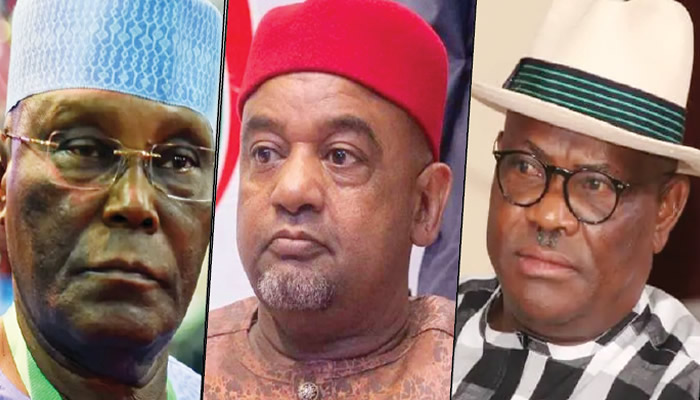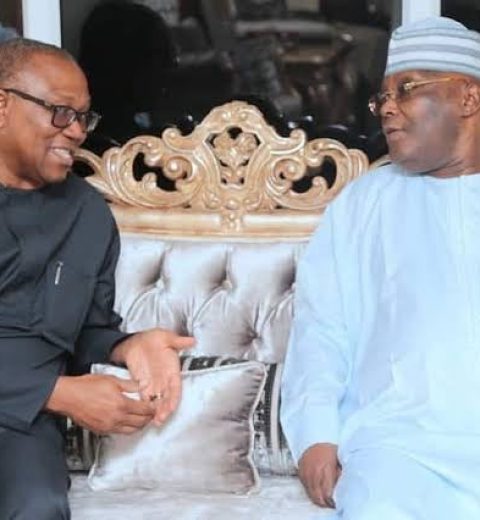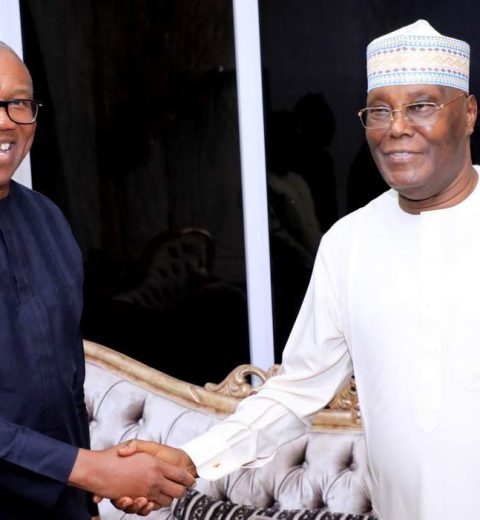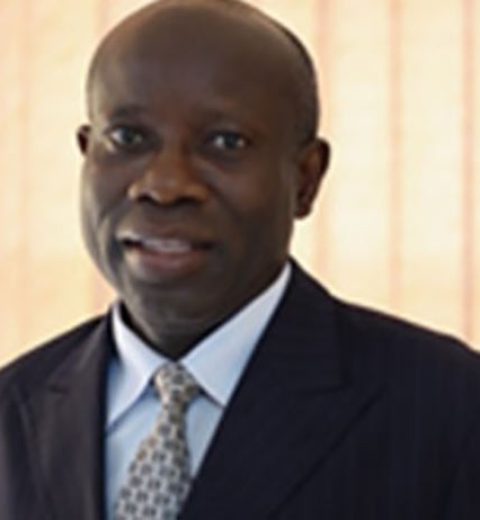
Since the lead-up to the aftermath of the 2023 election, the major opposition political entity, the People’s Democratic Party (PDP), has been engulfed in internal turmoil characterized by leadership disputes, suspensions, and legal battles. Prior to the emergence of the 17 presidential hopefuls in 2023 and their subsequent pursuit of agendas and ambitions, the PDP enjoyed a period of relative tranquility.
Tensions escalated following the defeat of the former governor of Rivers State and Minister of the Federal Capital Territory, Nyesom Wike, by the former Vice President, Atiku Abubakar, in the party’s presidential primary in 2022.
The internal dynamics of the party took a new turn when Atiku selected former Delta State governor, Ifeanyi Okowa, as his running mate for the recent presidential election. This decision went against the recommendation of influential figures like the ex-governor of Benue State, Samuel Ortom, who had advocated for Wike to be the PDP’s vice presidential candidate.
Consequently, the party became divided into two factions: the Wike G5 group and Atiku’s group, each pursuing its own objectives. The G5 faction insisted on the resignation of the currently suspended PDP National Chairman, Iyorchia Ayu, as a precondition for supporting Atiku in the 2023 presidential election.
However, Atiku’s faction rejected this demand and instead reluctantly accepted the resignation of the Board of Trustees Chairman, Senator Walid Jibrin. Wike’s faction also opposed this decision and held multiple press conferences, divulging information that further tarnished the already besmirched reputation of both the party and the PDP’s 2023 presidential candidate.
While other political parties were gearing up for the elections, the conflict between Wike and Atiku dominated discussions within the PDP. This led to conflicting strategies during the election, ultimately resulting in the party’s defeat against President Bola Tinubu’s All Progressives Congress. Efforts to reconcile both factions ahead of the presidential election faced obstacles, as appeals from party leaders and members to mend their differences were rebuffed by the Atiku and Wike camps.
Following the election, tensions between the Atiku and Wike factions intensified, resulting in the suspension of certain members and legal actions filed against the party by others. The crisis reached its peak when Justice W. I. Kpochi of the Benue State High Court ordered Ayu to refrain from acting as the party’s chairman.
Consequently, in compliance with the court ruling and the party’s 2017 constitution as amended, the National Working Committee appointed Ambassador Umar Damagum, the Deputy National Chairman (North), as the acting national chairman of the party. Despite his efforts to maintain impartiality, Damagum encountered significant challenges in restoring stability to the PDP. The conflict between the Wike and Atiku factions has profoundly affected all aspects of the party, including the NWC, PDP Governors’ Forum, National Executive Council, BoT, and others.
These challenges, among others, have hindered the PDP’s ability to present a unified stance on national issues. Furthermore, the recent 98th NEC meeting was fraught with tension as the Atiku and Wike factions competed for dominance, failing to address crucial issues essential for the party’s future direction.
Beyond these national issues, several state party chapters are grappling with internal crises. In Kaduna State, conflicts involve former Vice President Namadi Sambo, ex-governor Ahmed Makarfi, and the 2023 governorship candidate, Isah Ashiru. Similarly, internal disputes plague the Kano and Yobe state chapters of the party.
In the North-Central region, the PDP chapter in Niger State is striving to regain its influence. Internal discord in Plateau State nearly resulted in the party losing its governorship position in court. Prolonged internal disputes have rendered the PDP seemingly inactive in Kogi and Kwara states.
Challenges persist in the North-East region, with chapters in Borno, Yobe, Bauchi, and Gombe facing obstacles. Members and stakeholders from these states hinder the party’s progress due to their vested interests.
In the South-West, Governors Seyi Makinde of Oyo and Ademola Adeleke of Osun have succeeded in stabilizing the party in their respective states. However, Ekiti, Ondo, Lagos, and Ogun states are experiencing significant crises.
In the South-East, besides the recent dispute over the position of PDP National Secretary, which sparked a conflict among party leaders, chapters in the five states of the zone are entangled in internal strife and numerous legal battles. On Tuesday, former Imo State governor, Emeka Ihedioha, and 11 others resigned from the party.
Clarifying his decision to leave the PDP after 26 years of membership, he stated, “Unfortunately, in recent times, the party has deviated from my personal principles. Despite my efforts to provide guidance, the party, regrettably, is no longer capable of implementing internal reforms, upholding its own regulations, or providing credible opposition to the ruling All Progressives Congress.
“In view of the above, I am compelled to tender my resignation from the Peoples Democratic Party with immediate effect. While the decision was not easy, I believe it is the right one,” he added.
Due to the prolonged internal crisis, the PDP is gradually losing ground in the South-East to former Anambra State governor, Peter Obi’s Labour Party.
Recently, the PDP chapters in the South-South have been plagued by negative publicity. The feud between Wike and Rivers State Governor, Sim Fubara, has disrupted the PDP, coupled with the defection of 27 state House of Assembly members from the PDP to the APC. Many party leaders are also defecting from the PDP to the APC and other parties. In Cross River and Edo states, the PDP is embroiled in internal conflicts.
Amidst these challenges, the PDP continues to grapple with numerous legal battles with no resolution in sight. The Legal Adviser of the PDP, Kamaldeen Ajibade, disclosed that the party is currently facing multiple court cases.
A Senior Advocate of Nigeria, urged party members to exhaust the party’s internal conflict resolution mechanisms before resorting to court.
The Senior Advocate of Nigeria (SAN), who prefers not to be named due to the sensitive nature of the issues impacting the PDP, emphasized, “It is a fundamental aspect of our constitution and has consistently been a founding principle of the party that internal mechanisms should be exhausted before resorting to litigation. Filing lawsuits against the party without first utilizing the internal conflict resolution mechanisms is considered a violation.
“We currently have numerous cases pending in court. These cases pertain to internal matters, distinct from election-related and pre-election issues, spanning from the Federal High Court to the Supreme Court.”
Damagum, in a recent discussion about his leadership approach, emphasized the party’s focus on reconciliation and expanding its membership rather than penalizing individuals for alleged anti-party actions, which, in his opinion, could jeopardize the party’s unity.
He stated, “There’s always pressure to take action against those deemed to be acting against the party’s interests. However, as a leader, I am bound by a set of rules. Even though these rules may be frustrating, I refrain from applying them, not to cause harm to the party.”
The acting PDP national chairman further remarked, “I take pride in the fact that I started with this party as a driver and today, by the grace of God, I find myself serving as the acting national chairman. I never anticipated holding this position. I have faith in this party; I believe it is the best in the country.”
Acknowledging that many members have been involved in anti-party activities at various levels, Damagum stated, “If I were to initiate suspensions, I would end up suspending numerous individuals for their involvement in such activities. Therefore, I urge your patience. Our aim is to preserve the unity of this party and manage it effectively. That is my mandate.
“When a substantive chairman assumes office, they may choose to take disciplinary actions as they see fit. However, as someone deeply invested in this party’s success and as one of its founding members, I believe it’s crucial to welcome back even those who may have strayed.”
As Damagum takes the helm of the PDP’s NWC, the prolonged delay in making critical decisions to address internal crises raises concerns among political analysts. There’s a fear that the party may hemorrhage members to rival parties like the APC and the LP, potentially diminishing its influence in future Nigerian elections.
‘PDP’s Crisis Could Devour It’
Political analyst Jide Ojo and former National Democratic Party chairman Chudi Chukwuani cautioned that the ongoing internal strife within the PDP could engulf the party unless genuine efforts are made to reconcile all disgruntled members.
In an interview, Ojo remarked, “If the internal crisis within the PDP isn’t promptly resolved, it could lead to the party’s downfall. In politics, interests reign supreme. The crisis partly stems from the lack of a peaceful transition from one NWC to another; with individuals either being ousted or resigning.”
“Despite controlling 13 out of 36 states, the PDP remains the primary opposition party, outnumbering the APC’s 20 states, with the New Nigeria People’s Party, All Progressives Grand Alliance, and LP each controlling one. However, the party’s growth is stunted by internal turmoil.”
He questioned why the party hasn’t resolved its leadership issues, saying, “It’s been over a year since Ayu’s removal, yet the NWC still lacks a permanent chairman. This internal strife hinders the PDP’s progress. The Damagum-led NWC urgently needs to initiate genuine reconciliation efforts and collaborate with the 13 PDP governors to move the party forward.”
Ojo emphasized the importance of professionalism within the party, stating, “To effectively engage with the ruling party, the PDP must unite at both state and federal levels. They need to handle party primaries and campaigns with transparency and unity. Addressing internal conflicts and promoting due process is vital for the party’s resilience.”
In a conversation with our correspondent, Chukwuani emphasized to Saturday PUNCH that the PDP’s credibility suffers when it’s besieged by internal crises, as potential investors shy away. He urged the party to swiftly resolve its leadership issues to function effectively as an opposition force.
He stated, “Indeed, a party in turmoil typically struggles to succeed. Success lies in a party’s ability to manage its affairs, maintain unity, and present a cohesive front before elections. Unity is essential to garner support from the political class and attract investments. No one wants to invest in a politically troubled party; it’s a futile endeavor.
“When a party is embroiled in crisis, it undermines its credibility and weakens its ability to mount an effective opposition. The PDP is currently fragmented and lacks a cohesive structure. To revitalize itself, the PDP must establish strong leadership; a party without leadership is no party at all. Thus, swift action is necessary to put competent leadership in place. With united leadership, the PDP can rebuild its organizational framework.”
Ongoing Reconciliation Efforts
In response, PDP National Publicity Secretary Debo Ologunagba acknowledged the internal challenges facing the party but assured that reconciliation efforts were underway. He stressed the inevitability of differences within any human organization but affirmed the party’s commitment to unity and adherence to its constitution.
He elaborated, “Organizational dynamics are inherent in any human setup. While the PDP acknowledges its internal issues, we remain committed to accommodating diverse viewpoints even amidst pre-election challenges.
“Reconciliation is an ongoing process within our party. Like in any family, disagreements may arise, but our commitment to unity remains unwavering. It’s essential to recognize that reconciling diverse perspectives takes time and patience.
“Moreover, the PDP operates within the framework of its constitution, ensuring adherence to established principles. Our party remains resolute in our vision to foster a fair and equitable democratic system, anchored on sound governance principles. As individuals come and go, the PDP will persist as a bastion of strength and unity, dedicated to the restoration and progress of Nigeria.”
During the 98th NEC gathering, significant steps were taken that could potentially benefit the PDP, including the formation of committees focused on reconciliation, disciplinary measures, and constitutional amendments.
During the session, the NEC appointed former Senate President, Abubakar Saraki, to lead the Reconciliation Committee, while former Akwa Ibom State governor, Udoh Emmanuel, was tasked with chairing the Disciplinary Committee. Additionally, the PDP Legal Adviser, Kamaldeen Ajibade, SAN, was appointed to lead the Constitution Amendment Committee.
Political analysts praised these appointments, highlighting the importance of reconciliation and disciplinary actions in upholding party integrity, and the significance of constitutional amendments in preventing future crises within the party.
Therefore, observers believe that the effectiveness of these committees and the strategies they employ will determine whether the PDP achieves the desired peace or continues to grapple with crises that could threaten its stability or even lead to its demise.
Stay updated and stay ahead of the game! For more instant updates, breaking news, and exclusive content on political news, follow Lagosstate.com. Don’t let any headline slip by!



